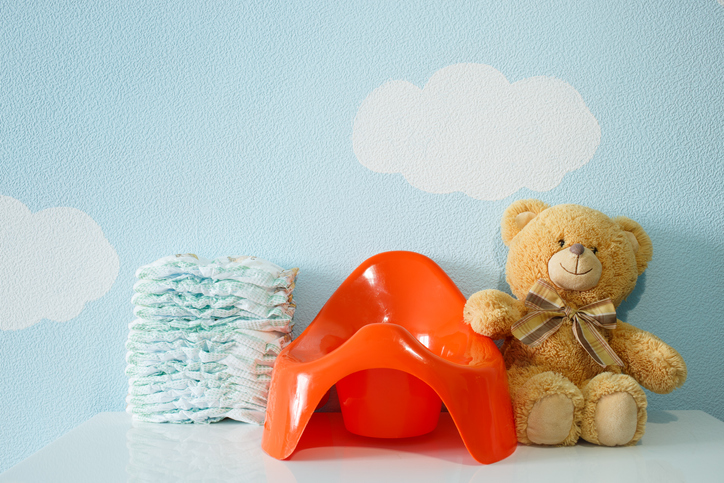“As adults, we are accustomed to acquiring new skills at a steady pace and retaining what we learn. Young children, however, whose learning often depends on their development in other areas, frequently progress in a series of sudden spurts interspersed with periods of little apparent improvement. At times, a child may even regress in her learning—that is, lose skills she has recently acquired or even take a few steps back in her learning process.” (HealthyChildren.org)
Perhaps you’ve felt a great sense of relief after potty training your child—and then suddenly, they start having accidents again. Is this a reason for concern? In most cases, not at all. According to VeryWellFamily.com, many 3-year-old children aren’t completely trained yet, and this phenomenon — known as potty training regression — is “normal, common and temporary.”
Reasons for Your Child’s Regression
If your child starts having accidents, the reason behind them can be quite simple. Sometimes, your child may be playing and, by the time he or she realizes that it’s time to go to sit on the potty chair, it’s too late. Or, now that being potty trained no longer seems like a big deal, his or her attention is elsewhere.
Parents.com points out another possibility: It may be that your child wasn’t fully toilet trained to begin with and this is just a fluctuation along the way.
Other times, stress can be a trigger — whether that’s starting preschool or a new baby in the home. Or if your child was ashamed by, say, having bowel movements in public, then he or she may experience training regression.
To get your child back on track, first make sure there aren’t any physical problems. This can include being constipated. If your child is experiencing difficult bowel movements, then he or she may be fearful of using the toilet. Urinary tract infections can also be scary for a child and prevent proper potty use.
Potty Training Regression Tips
You’ll want to talk to your child’s doctor if there’s a chance that constipation or urinary tract infections are a contributing factor in the training regression. If there isn’t a medical issue involved, get your child back on track by creating a schedule and/or remind your child to sit on the potty every couple of hours, including when he or she first wakes up and after eating. Offer positive reinforcement for making the attempt, such as stickers or adding a star to a reward chart.
If there is an accident, don’t make a big deal out of it. Calmly clean up your child and stay on track with your potty training process. Don’t punish your child for not staying dry or having bowel movements off the toilet. As Healthline.com points out, this may cause him or her to try to hold back pee or poop, leading to more problems.
Positive Reinforcements in Your Potty Training Process
A pediatrician quoted by Parents.com suggests that, when you check and find out that your child is dry, “clap and cheer.” If not, you can just say, “Oops. You had an accident. Let’s go sit on the potty.” The goal, another pediatrician said, it to empower your child about the process.
Choose positive reinforcements that work for your child. The sticker chart may work for some — and, with several days of staying dry in a row, you could read an extra book or two at bedtime as part of your reward system. Other children, though, might feel anxious by this kind of monitoring. In that case, saying, “Look how independent you are!” might be the best reward system of all — one that brings your child one step closer to being potty trained.




